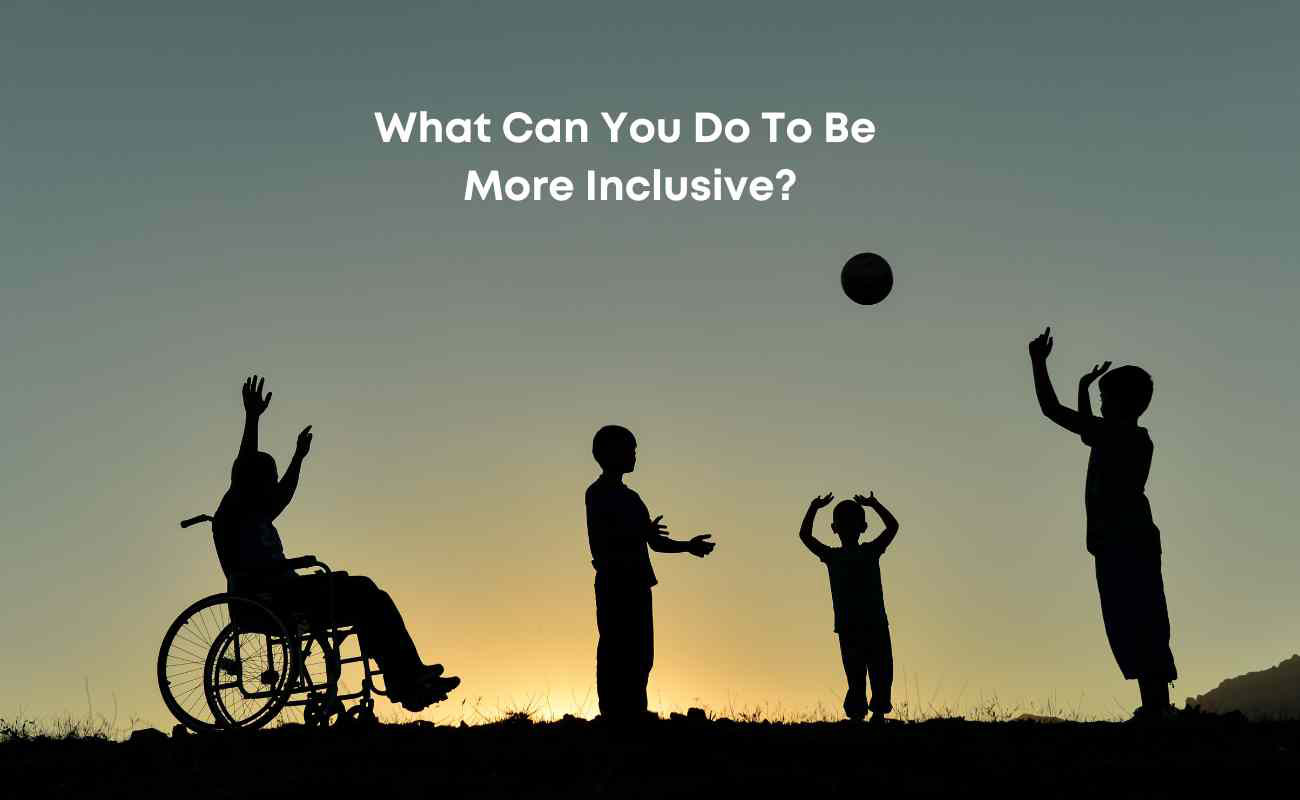
What can you do to be more inclusive?
As we celebrate World Down Syndrome Day this month it’s crucial that we, in our day-to-day activities understand what inclusion means.
On Friday, we commemorated World Women’s Day. The theme was inclusion and investing in women.
This year, World Down Syndrome´s Day theme is End The Stereotypes. For this to happen, we need to understand what inclusion is. We also need to understand what we can do to support and be more inclusive.
Inclusion is not just for the sake of seeming diverse but also for ensuring that we are providing access or making it easier for individuals with disabilities to go about their daily lives. i.e. not having ramps that are too steep that people using wheelchairs can’t access the building.
According to the Oxford Dictionary, Inclusion is the practice or policy of providing equal access to opportunities and resources for people who might otherwise be excluded or marginalized, such as those who have physical or intellectual disabilities and members of other minority groups.
Here’s what you can do to be more inclusive:
1. Educate yourself
By understanding the limitations people with developmental disabilities have, you will be able to accommodate them better.
For instance, individuals with developmental disabilities who have not undergone behavioral therapy may ask “inappropriate” questions. They may not understand the concept of social skills and boundaries. Wanjugu, in our latest video, narrated her encounter with a 16-20-year-old who didn’t understand what questions to ask and which ones not to ask. The people around her were not impressed that she was entertaining the discussion. At the end of it, she also had to educate them on what gave away that the young man had a developmental disability.
Educating yourself means liberating yourself from stereotypes thus creating a better world for others. By understanding how Down syndrome came to be you will not tie yourself to stereotypes such as it’s caused by witchcraft, it’s a punishment from God.
Education yourself also helps keep your vocabulary in check. You will avoid using offensive words such as retard, and mad person when discussing people with disabilities.
- Watch our YouTube video on what inclusion means from 28 parents.
2. Visibility
In a questionnaire, we asked 28 parents how they would define inclusion. One parent mentioned visibility. Deliberately placing people with disabilities in rooms they normally wouldn’t be. Not only does this cement that disabilities are not a death sentence, but it also affirms children with disabilities. Reminding them, that they too can and deserve to go after their dreams. Visibilities also help fight stereotypes and educate the masses.
- Watch our interview with DJ Wiwa
- Look for shows on Akili Kids that help children understand disabilities.
3. Support
Almost all children with disabilities require medication, therapy, and education in addition to their basic needs. All this requires money. Parents caring for children with developmental disabilities are often fired under the guise of not being efficient, redundancy, and more.
This leaves the family in a very vulnerable position. Inclusion would look like giving children with disabilities affordable education and affordable medication. It would also look like supporting caregivers and siblings of the person living with a disability.
Although the government has some empowerment services in place, the government needs to enforce them better. It is also crucial that the money set aside by the government Ksh 2000 is given to families with People living with a disability each month. http://www.kenyadisabilityresource.org/Kenya-Government-Disability-Services
4. Be an Ally
Merriam-Webster dictionary defines an ally as someone who is regarded by another as a helper; an individual or organization that offers aid and support during a continuous endeavor, action, or conflict. The phrase has been explicitly used to describe someone who supports a minority group in recent years.
Here are some suggestions to think about if you’re trying to or want to be a better ally:
Check for inclusivity at work and request accommodations.
Have frank discussions while remaining curious to show your support.
Donate your time to organizations that assist people with impairments.
Include people with disabilities in your network so you can learn from them.
5. Speak up against any form of discrimination
Disability-related violence includes both emotional and physical abuse. Insults that subject the victim to mental anguish and emotional distress are considered forms of emotional violence. Speak up if you see someone using violence against a disabled person in any way! Don’t keep quiet about it. Speaking out against violence against people with disabilities is vital, as is speaking out against acts of violence in general.
Unlike people without disabilities, people with disabilities are more likely to become victims of various sorts of violence. People with disabilities are victims of sexual assault, particularly young girls. Unfortunately, a large number of those who commit these horrible crimes are the victims’ close relatives. Those who are meant to show compassion and care for individuals with impairments instead mistreat them.
Remember people with disabilities are people and should be treated with love and respect.

